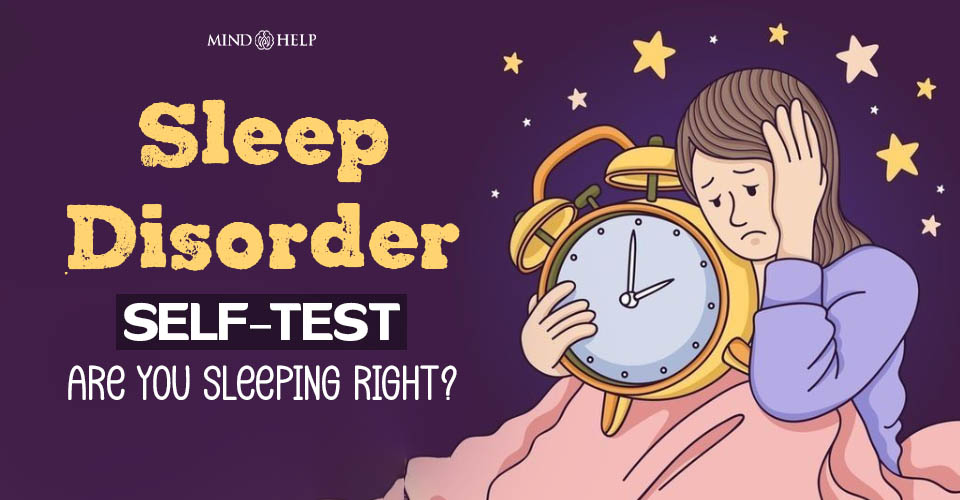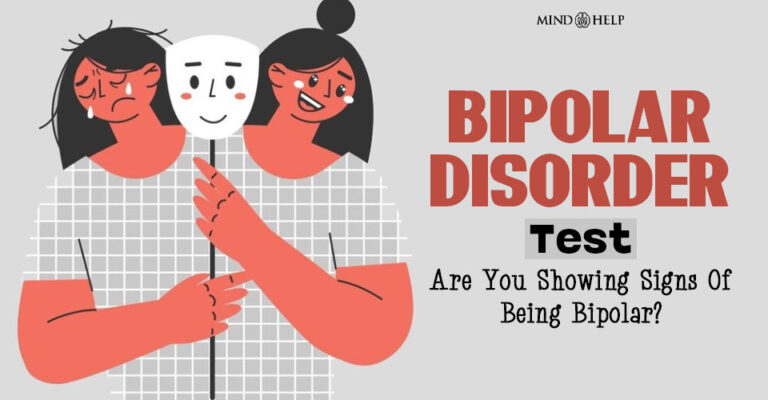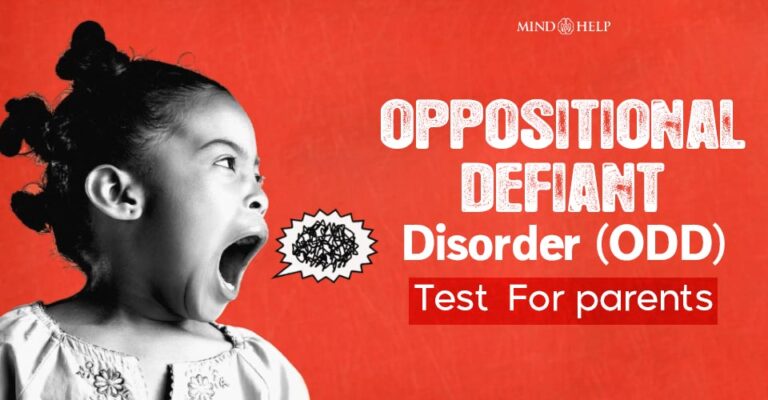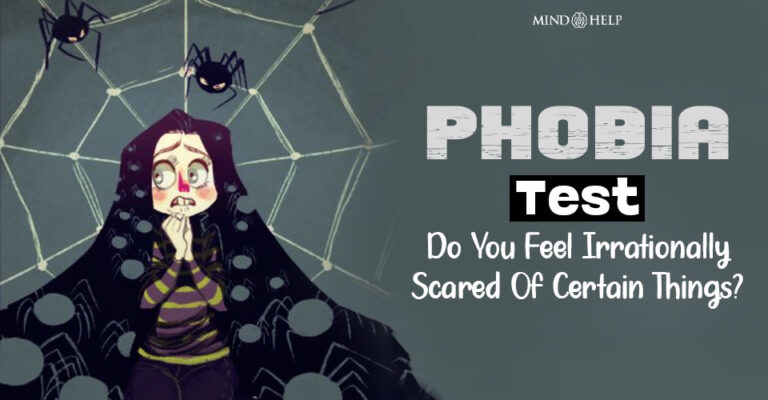Does falling asleep seem like an everyday challenge to you? Do you wake up frequently at night, and feel tired the next day, even after a long night’s sleep? Do you feel your daily life is getting disrupted due to your sleeping patterns? Take this sleep disorder test to determine whether you have signs of Sleep Disorder.
What is Sleep Disorder?
Sleep disorders are conditions that result in impairment in the quality, timing, and amount of sleep, which disrupt the daily lifestyle of an individual.
In DSM, Sleep Disorders are categorized into 3 types. They are Insomnia, Arousal Disorder, and Hypersomnia, amongst which Insomnia is the most common.
When it comes to sleep-wake disorders, this includes parasomnias, restless leg syndrome, obstructive sleep apnea, and narcolepsy as well.
Sleeping difficulties are often lined with a person’s emotional, psychological and physical health.
Lack of proper sleep and irregular sleep patterns can lead to issues such as:
- Lack of energy and interest at work
- Anger issues
- Poor concentration
- Mental health disorders
- Physical ailments
Research revealed that sleep deprivation affects both men and women equally.
Now onto the assessment for Sleep Disorder.
Instructions For Taking Sleep Disorder Test
Below is a list of questions that relate to life experiences common among people with signs of Sleep Disorder. Please read each question carefully, and select the answers that suggest how often you have experienced the same or similar challenges in the past few months.
Please note: This Sleep Disorder Assessment is a self-assessment and not a diagnostic test.
Quiz Summary
0 of 20 Questions completed
Questions:
Information
You have already completed the quiz before. Hence you can not start it again.
Quiz is loading…
You must sign in or sign up to start the quiz.
You must first complete the following:
Results
Results
Your time:
Time has elapsed
You have reached 0 of 0 point(s), (0)
Earned Point(s): 0 of 0, (0)
0 Essay(s) Pending (Possible Point(s): 0)
Categories
- Not categorized 0%
-
No signs of Sleep Disorder
Your score indicates that you have no significant signs of Sleep Disorder. Your response reveals that you do not have any such sleeping difficulties and you seem to maintain proper sleep hygiene. You also seem to show no such symptoms as restlessness, anxiety, or nightmares during your sleep. Your response also shows that you do not face any such difficulties throughout the day because of a lack of proper sleep. However, it should be noted that this is just a basic screening tool and not meant for proper medical diagnosis. If you think the results do not accurately represent your thoughts and feelings, then we would encourage you to consult a mental health professional for accurate diagnosis and treatment.
-
Low signs of Sleep Disorder
Your score indicates that you have low significant signs of Sleep Disorder. Your response reveals that you might have slight sleeping difficulties that disrupt your proper sleep hygiene. You also seem to show slight symptoms such as restlessness, anxiety, or nightmares during your sleep. Your response also shows that you might seem to have a few concentration problems, irritability, and drowsiness throughout the day because of a lack of proper sleep. Your response also seems that your sleep pattern might break down in the middle of your sleep schedule and you might show a few difficulties in waking up after your sleep is over. However, it should be noted that this is just a basic screening tool and not meant for proper medical diagnosis. If you think the results do not accurately represent your thoughts and feelings, then we would encourage you to consult a mental health professional for accurate diagnosis and treatment.
-
Moderate signs of Sleep Disorder
Your score indicates that you have moderate significant signs of Sleep Disorder. Your response reveals that you might seem to have some sleeping difficulties that disrupt your proper sleep hygiene. You also seem to show some of the symptoms such as restlessness, anxiety, or nightmares during your sleep. Your response also shows that you might seem to have concentration problems, irritability, and drowsiness throughout the day because of a lack of proper sleep. Your response also seems that your sleep pattern might break down in the middle of your sleep schedule and you might show some difficulties in waking up after your sleep is over. This also reveals that your sleeping pattern might seem to affect some functioning of your daily life. However, it should be noted that this is just a basic screening tool and not meant for proper medical diagnosis. If you think the results do not accurately represent your thoughts and feelings, then we would encourage you to consult a mental health professional for accurate diagnosis and treatment.
-
Severe signs of Sleep Disorder
Your score indicates that you have severe significant signs of Sleep Disorder. Your response reveals that you might seem to have strong sleeping difficulties that disrupt your proper sleep hygiene. You also seem to show many symptoms such as restlessness, anxiety, or nightmares during your sleep. Your response also shows that you seem to have many difficulties such as concentration problems, irritability, forgetfulness, and drowsiness throughout the day because of a lack of proper sleep. Your response also seems that your sleep pattern might seem to break down in the middle of your sleep schedule and you might show strong difficulties in waking up after your sleep is over. This also reveals that your sleeping pattern might seem to impair the functioning of your daily life in many cases. However, it should be noted that this is just a basic screening tool and not meant for proper medical diagnosis. If you think the results do not accurately represent your thoughts and feelings, then we would encourage you to consult a mental health professional for accurate diagnosis and treatment.
- Review
- Answered
- Correct
- Incorrect
-
Question 1 of 20
1. Question
-
Question 2 of 20
2. Question
-
Question 3 of 20
3. Question
-
Question 4 of 20
4. Question
-
Question 5 of 20
5. Question
-
Question 6 of 20
6. Question
-
Question 7 of 20
7. Question
-
Question 8 of 20
8. Question
-
Question 9 of 20
9. Question
-
Question 10 of 20
10. Question
-
Question 11 of 20
11. Question
-
Question 12 of 20
12. Question
-
Question 13 of 20
13. Question
-
Question 14 of 20
14. Question
-
Question 15 of 20
15. Question
-
Question 16 of 20
16. Question
-
Question 17 of 20
17. Question
-
Question 18 of 20
18. Question
-
Question 19 of 20
19. Question
-
Question 20 of 20
20. Question
Frequently Asked Questions (FAQs)
1. What are the 5 major sleep disorders?
The 5 major sleep disorders are narcolepsy, restless leg syndrome, sleep apnea, insomnia, and parasomnias.
2. Is sleep disorder curable?
There isn’t really a “cure” for sleep disorder, but it’s symptoms can be managed with the help of certain treatments like Cognitive Behavioral Therapy, relaxation techniques, CPAP machines and even melatonin supplements.
3. Is insomnia a mental health disorder?
Insomnia is not considered to be a mental illness or mental disorder, rather it’s a symptom of another illness.
Quiz Summary
0 of 20 Questions completed
Questions:
Information
You have already completed the quiz before. Hence you can not start it again.
Quiz is loading…
You must sign in or sign up to start the quiz.
You must first complete the following:
Results
Results
Your time:
Time has elapsed
You have reached 0 of 0 point(s), (0)
Earned Point(s): 0 of 0, (0)
0 Essay(s) Pending (Possible Point(s): 0)
Categories
- Not categorized 0%
-
No signs of Sleep Disorder
Your score indicates that you have no significant signs of Sleep Disorder. Your response reveals that you do not have any such sleeping difficulties and you seem to maintain proper sleep hygiene. You also seem to show no such symptoms as restlessness, anxiety, or nightmares during your sleep. Your response also shows that you do not face any such difficulties throughout the day because of a lack of proper sleep. However, it should be noted that this is just a basic screening tool and not meant for proper medical diagnosis. If you think the results do not accurately represent your thoughts and feelings, then we would encourage you to consult a mental health professional for accurate diagnosis and treatment.
-
Low signs of Sleep Disorder
Your score indicates that you have low significant signs of Sleep Disorder. Your response reveals that you might have slight sleeping difficulties that disrupt your proper sleep hygiene. You also seem to show slight symptoms such as restlessness, anxiety, or nightmares during your sleep. Your response also shows that you might seem to have a few concentration problems, irritability, and drowsiness throughout the day because of a lack of proper sleep. Your response also seems that your sleep pattern might break down in the middle of your sleep schedule and you might show a few difficulties in waking up after your sleep is over. However, it should be noted that this is just a basic screening tool and not meant for proper medical diagnosis. If you think the results do not accurately represent your thoughts and feelings, then we would encourage you to consult a mental health professional for accurate diagnosis and treatment.
-
Moderate signs of Sleep Disorder
Your score indicates that you have moderate significant signs of Sleep Disorder. Your response reveals that you might seem to have some sleeping difficulties that disrupt your proper sleep hygiene. You also seem to show some of the symptoms such as restlessness, anxiety, or nightmares during your sleep. Your response also shows that you might seem to have concentration problems, irritability, and drowsiness throughout the day because of a lack of proper sleep. Your response also seems that your sleep pattern might break down in the middle of your sleep schedule and you might show some difficulties in waking up after your sleep is over. This also reveals that your sleeping pattern might seem to affect some functioning of your daily life. However, it should be noted that this is just a basic screening tool and not meant for proper medical diagnosis. If you think the results do not accurately represent your thoughts and feelings, then we would encourage you to consult a mental health professional for accurate diagnosis and treatment.
-
Severe signs of Sleep Disorder
Your score indicates that you have severe significant signs of Sleep Disorder. Your response reveals that you might seem to have strong sleeping difficulties that disrupt your proper sleep hygiene. You also seem to show many symptoms such as restlessness, anxiety, or nightmares during your sleep. Your response also shows that you seem to have many difficulties such as concentration problems, irritability, forgetfulness, and drowsiness throughout the day because of a lack of proper sleep. Your response also seems that your sleep pattern might seem to break down in the middle of your sleep schedule and you might show strong difficulties in waking up after your sleep is over. This also reveals that your sleeping pattern might seem to impair the functioning of your daily life in many cases. However, it should be noted that this is just a basic screening tool and not meant for proper medical diagnosis. If you think the results do not accurately represent your thoughts and feelings, then we would encourage you to consult a mental health professional for accurate diagnosis and treatment.
- Review
- Answered
- Correct
- Incorrect
-
Question 1 of 20
1. Question
-
Question 2 of 20
2. Question
-
Question 3 of 20
3. Question
-
Question 4 of 20
4. Question
-
Question 5 of 20
5. Question
-
Question 6 of 20
6. Question
-
Question 7 of 20
7. Question
-
Question 8 of 20
8. Question
-
Question 9 of 20
9. Question
-
Question 10 of 20
10. Question
-
Question 11 of 20
11. Question
-
Question 12 of 20
12. Question
-
Question 13 of 20
13. Question
-
Question 14 of 20
14. Question
-
Question 15 of 20
15. Question
-
Question 16 of 20
16. Question
-
Question 17 of 20
17. Question
-
Question 18 of 20
18. Question
-
Question 19 of 20
19. Question
-
Question 20 of 20
20. Question







